Related Research Articles

Chenjerai Hove, was a Zimbabwean poet, novelist and essayist who wrote in both English and Shona. "Modernist in their formal construction, but making extensive use of oral conventions, Hove's novels offer an intense examination of the psychic and social costs - to the rural population, especially, of the war of liberation in Zimbabwe." He died on 12 July 2015 while living in exile in Norway, with his death attributed to liver failure.

Galway Mills Kinnell was an American poet. His dark poetry emphasized scenes and experiences in threatening, ego-less natural environments. He won the Pulitzer Prize for Poetry for his 1982 collection, Selected Poems and split the National Book Award for Poetry with Charles Wright. From 1989 to 1993, he was poet laureate for the state of Vermont.
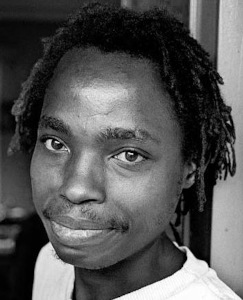
Dambudzo Marechera was a Zimbabwean novelist, short story writer, playwright and poet. His short career produced a book of stories, two novels, a book of plays, prose, and poetry, and a collection of poetry. His first book, a fiction collection entitled The House of Hunger (1978), won the Guardian Fiction Prize in 1979. Marechera was best known for his abrasive, heavily detailed and self-aware writing, which was considered a new frontier in African literature, and his unorthodox behaviour at the universities from which he was expelled despite excelling in his studies.
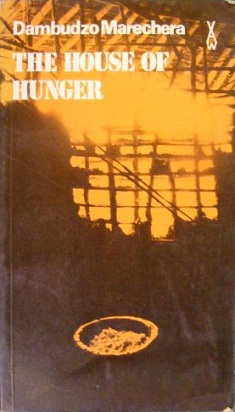
The House of Hunger (1978) is a novella/short story collection by Zimbabwean writer Dambudzo Marechera (1952–1987), his first published book, and was published three years after he left university and ten years before his death.
Solomon Mangwiro Mutswairo, also spelt Mutsvairo, was a Zimbabwean novelist and poet. A member of the Zezuru people of central Zimbabwe, he wrote the first novel in the Shona language, Feso.
John Agard FRSL is a Guyanese playwright, poet and children's writer, now living in Britain. In 2012, he was selected for the Queen's Gold Medal for Poetry. He was awarded BookTrust's Lifetime Achievement Award in November 2021.

Joram Mariga has been called the “Father of Zimbabwean Sculpture” because of his influence on the local artistic community starting in the 1950s and continuing until his death in 2000. The sculptural movement of which he was part is usually referred to as “Shona sculpture”, although some of its recognised members are not ethnically Shona.
Hans Ansgar Ostrom is an American professor, writer, editor, and scholar. Ostrom is a professor of African American Studies and English the University of Puget Sound (1983–present), where he teaches courses on African-American literature, creative writing, and poetry as a genre. He is known for his authorship of various books on African-American studies and creative writing, and novels including Three to Get Ready, Honoring Juanita, and Without One, as well as The Coast Starlight: Collected Poems 1976–2006.
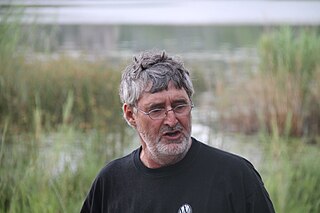
John Eppel is a Zimbabwean short story writer, novelist and poet. In 1990 he was awarded the Ingrid Jonker Prize for his poetry volume, "Spoils of War", detailing his experiences as a soldier in the Rhodesian Bush War.
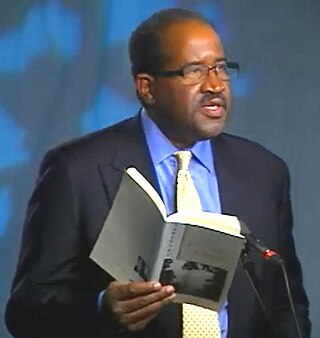
Afaa Michael Weaver, formerly known as Michael S. Weaver, is an American poet, short-story writer, and editor. He is the author of numerous poetry collections, and his honors include a Fulbright Scholarship and fellowships from the National Endowment for the Arts, Pew Foundation, and Kingsley Tufts Poetry Award. He is the Director of the Writing Intensive at The Frost Place.
David Punter is Professor of English at the University of Bristol. He is the author of many critical studies, and has been internationally recognised as an expert on Gothic culture.
Kristina Masuwa-Morgan is a Zimbabwean poet and short story writer, better known as Kristina Rungano. She was the first published Zimbabwean woman poet.
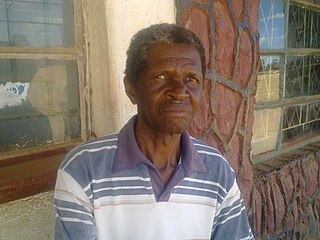
Morgan Mahanya is a Zimbabwean Shona-language writer of detective fiction and war fiction. He has published 13 books since 1976, including books in Shona and in English, both fiction and nonfiction. Mahanya is one of the pioneering writers of detective stories in the Shona language. His books Chidamwoyo, Zvinoyera and The Wound are about the Rhodesian Bush War.
Julius Sekai Chingono (1946-2011) was a writer from Zimbabwe. He wrote poetry in Shona and English.
George Payne Kahari was a Zimbabwean diplomat, educator, arts administrator and writer. He served as an ambassador to Germany, Italy and Czechoslovakia. He has been Visiting Professor of Modern African Literature at a number of American universities. After his stint as a diplomat, Professor Kahari was the first black director at the National Gallery of Zimbabwe. He was one of the founders of the Catholic University of Zimbabwe, which was established in 1999.
Samuel Chimsoro was a Zimbabwean poet and novelist who published in both English and Shona.
Zimbabwean literature is literature produced by authors from Zimbabwe or in the Zimbabwean Diaspora. The tradition of literature starts with a long oral tradition, was influence heavily by western literature during colonial rule, and acts as a form of protest to the government.
Colin Style was a British-Zimbabwean poet and writer. He was awarded the Ingrid Jonker Prize for best published collection in English in Southern Africa, 1977 with Baobab Street (1977).
N.H. Brettell was a British-Zimbabwean poet and writer. His poetry collection, Bronze Frieze: Poems Mostly Rhodesian was published by Oxford University Press in 1950. The South African poet Douglas Livingstone remarked that Brettell was the best poet writing in the region. Brettell was awarded the Book Centre / P.E.N. Centre of Rhodesia Annual Literary Prize in 1972 and 1978.
References
- ↑ Contemporary Authors Online, Gale, 2006.
- ↑ Fulbright 1982/2006 African Senior Fulbright Research Scholars Archived 2007-01-25 at the Wayback Machine . Accessed 2007-10-09